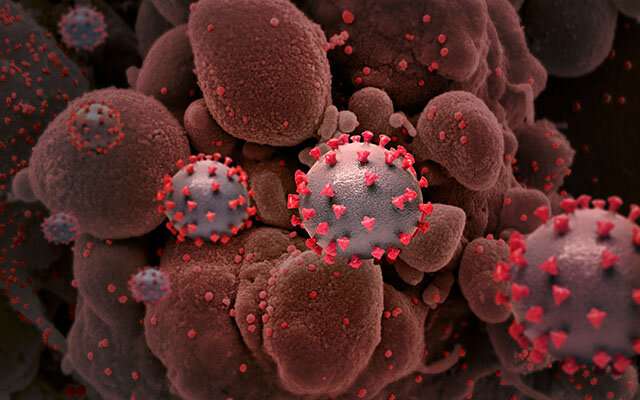Creative rendition of SARS-CoV-2 particles (not to scale). Credit: National Institute of Allergy and Infectious Diseases, NIH
By the end of the first year of the pandemic in metropolitan Stockholm, investigators estimate that one-fifth of adults in the region previously had COVID-19. The findings, which are published in the Journal of Internal Medicine, come from analyses of anti-viral antibody responses in healthy blood donors and pregnant women.
For the study, researchers examined blood from 2,600 blood donors and 2,500 pregnant women taken between March 14th 2020 and February 28th 2021. Blood donors and pregnant women had a similar rate of past infection, approaching 19% of the study group by the end of February 2021, shortly before mass vaccinations entered the adult population in Sweden. Nearly all (96%) positive samples screened displayed virus neutralizing responses comparable to those provoked by COVID-19 mRNA vaccines, suggesting that milder infections generally provide a degree of protection upon re-exposure to the virus that causes COVID-19.
"That nearly one in five individuals in these study groups had COVID-19 in the first year of the pandemic is striking. The data show how pervasive the virus is in Stockholm and highlight the need to reduce transmission to curtail viral evolution and prevent additional burden on the public healthcare system," said corresponding author Xaquin Castro Dopico, BVM&S, Ph.D., of the Karolinska Institute.
More information: X. Castro Dopico et al. Seropositivity in blood donors and pregnant women during the first year of SARS-CoV-2 transmission in Stockholm, Sweden. Journal of Internal Medicine. First published: 18 May 2021 doi.org/10.1111/joim.13304
Journal information: Journal of Internal Medicine
Provided by Wiley























